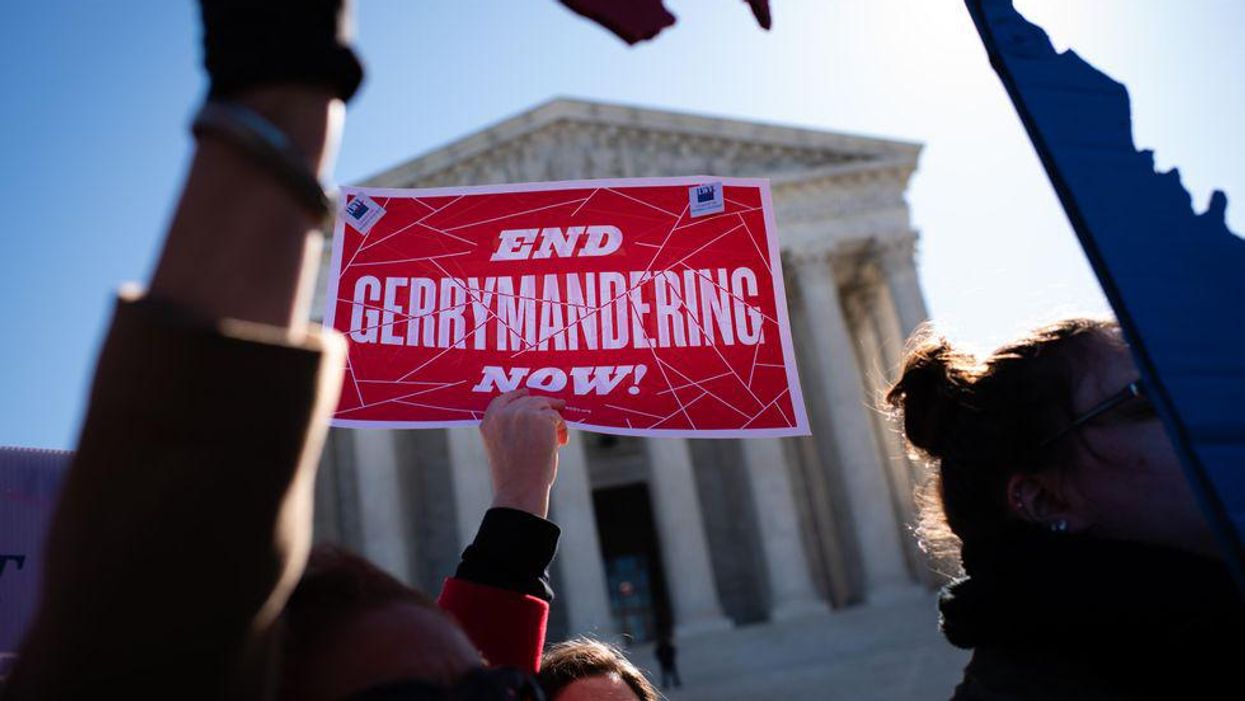To the casual observer, gerrymandering can be difficult to spot, especially with recent technological advancements. But two new tools make it much easier to uncover partisan map manipulation.
And it's no coincidence that "good government" groups are unveiling these free tools now. On Thursday, the Census Bureau will release the updated population data states need to start redrawing congressional and state legislative maps for the new decade.
RepresentUs and the Princeton Gerrymandering Project collaborated to produce the Redistricting Report Card. And the Campaign Legal Center relaunched PlanScore. Both tools will analyze each state's newly drawn election maps for partisan impact.
Because the entire process of collecting and processing census data has been delayed by the coronavirus pandemic, states are facing a compressed timeline for redistricting this year. The data being released this week normally comes out in the spring, and the final set of redistricting data won't be available until late September.
In most of the country, the two major parties remain in control of the mapmaking process. Republicans will have the advantage over redistricting in 21 states, while Democrats have it in nine. Another nine states have a divided government and the remaining 11 states have given mapmaking authority over to a redistricting commission.
Fair maps advocates hope to use these online tools to hold mapmakers, partisan or independent, accountable as well as raise public awareness about gerrymandering and the redistricting process.
The Redistricting Report Card uses an algorithm that generates one million potential maps for each state to provide a baseline of possibilities, both good and bad. Then, the tool will use these one million possibilities to compare and evaluate map proposals from state legislatures, redistricting commissions and even reform groups.
It will grade proposals based on competitiveness, geography and, most importantly, partisan fairness. Grades will be posted as state maps are produced later this year.
"It is critical that we deliver to citizens ways to evaluate and correct attempts to skew representation," said Sam Wang, director of the Princeton Gerrymandering Project and its extension, the Electoral Innovation Lab. "Our democracy depends on a transparent representation model that is responsive to citizens. We want citizens and map experts nationwide to use tools like this to reclaim their power in the democratic process."
In April, RepresentUs released a Gerrymandering Threat Index warning that 35 states are at extreme or high risk of gerrymanderingthis cycle. The Redistricting Report Card will confirm whether those states do end up manipulating maps for partisan advantage.
"Gerrymandering disenfranchises voters and makes it harder to hold politicians accountable. This important new grading tool will sound the alarm about gerrymandered maps around the country, empowering voters to demand their representatives draw fair maps," said RepresentUs CEO Josh Silver.
While the report card is a new tool, PlanScore was created in 2018 and has been updated and relaunched by the Campaign Legal Center.
As state redistricting plans progress, PlanScore will collect and analyze new maps to determine how severely they are skewed in favor of one major party over the other. The three main metrics for analysis are:
- Efficiency gap (the extent to which district lines crack and pack one party's voters more than the other).
- Partisan bias (the difference between each party's seat share and 50 percent in a hypothetically tied election).
- Mean-median difference (whether and how much a district's vote distribution is skewed in favor of one party over the other).
The website also contextualizes this year's redistricting process by allowing users to compare current and upcoming maps for Congress and the state legislature to historical plans dating back to the 1970s.
Additionally, policymakers and fair maps advocates can upload their own redistricting concepts to PlanScore, which will instantly evaluate them for partisan fairness.
PlanScoreCasey Atkins, Campaign Legal Center
"The voting districts that will be finalized in the coming weeks will be cemented for the next 10 years," said Mark Gaber, director of redistricting at the Campaign Legal Center. "PlanScore.org empowers voters to hold map drawers accountable and demand fair maps during this critical map drawing year."




















Trump & Hegseth gave Mark Kelly a huge 2028 gift